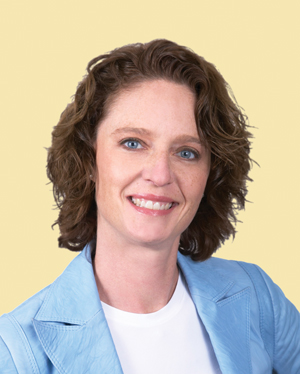Ontario’s judges have a new means of enforcing civility in their courts with a protocol that will let them refer lawyers for mentoring from senior members of the bar.

“It will be incredibly helpful if an issue that a lawyer is having can be successfully fixed by a mentoring session rather than having it escalate and the lawyer being subject to something more serious,” says Sandra Forbes, president of The Advocates’ Society.
“In this day and age, there are so many more lawyers, and maybe we don’t have the type of mentoring that was in existence 10, 20 years ago. So we see this as an opportunity to provide somebody with the assistance that will make them a better counsel and avoid any further issues down the road.”
The new protocol, which is completely voluntary and confidential, will apply to the Superior Court of Justice and Ontario Court of Justice. It was created by the Law Society of Upper Canada along with the top judges of the two courts, chief justices Heather Smith and Annemarie Bonkalo respectively, and Ontario Chief Justice
Warren Winkler.
The protocols are a response to 2008’s “Report of the Review of Large and Complex Criminal Case Procedures” by former Ontario Superior Court chief justice Patrick LeSage and former University of Toronto law professor Michael Code, who is now a Superior Court judge.
The report singled out the breakdown of decorum in the courtroom as a key factor in faulty proceedings. It also criticized the law society’s approach to lawyers’ courtroom misconduct, saying such behaviour often merits more serious punishment than letters of advice, invitations to attend, and regulatory meetings.
“When counsel’s misconduct disrupts or distorts criminal proceedings, especially long, complex trials, it causes great harm to the administration of justice and is worthy of significant penalties,” said the report.
In response, law society Treasurer Derry Millar and Bencher Glenn Hainey, a member of the LSUC’s professional regulation committee, met with the province’s judiciary, the Ministry of the Attorney General, and legal organizations to consider how to deal with its findings, according to a report to September Convocation.
Judges backed the creation of a procedure that would allow them to refer a lawyer to the law society for mentoring, said the report.
“In many cases, the judges feel that the conduct, although inappropriate, does not warrant a full law society complaints investigation with the serious consequences that could result from that process,” read the report.
The result is a set of formalized protocols that make way for both traditional forms of remediation and judges’ requests for mentoring. Both courts, the LSUC, the Ministry of the Attorney General, the Criminal Lawyers’ Association, and The Advocates’ Society are backing the protocols.
The protocols give judges three options for dealing with lawyers’ courtroom malfeasance. They can exercise the contempt power for the most serious cases or refer misconduct to the law society for consideration through the normal regulatory process. The third option is the new mentoring route, reserved for incidents that judges don’t believe merit the use of law society misconduct procedures.
The report noted the law society will consider requests for mentoring based on a lawyer’s complaint history. If the LSUC decides mentoring is not the right route to take based on that background check, the matter may go to its complaints resolution or investigations departments.
When the law society opts for mentoring and the lawyer agrees to participate, a senior member of the CLA will handle the issue if it relates to a criminal matter while The Advocates’ Society will get involved on the civil side. When the lawyer is a Crown prosecutor, the Ministry of the Attorney General will deal with the conduct.
The results of the mentoring session will then go back to the law society, which will finish the process by reporting the outcome to the court.
Some benchers questioned what would happen when lawyers decline mentorship, but LSUC chief executive officer Malcolm Heins appeared to put their concerns to rest.
“The point is that under these protocols, it is the law society that determines, in the final analysis, what is suitable for mentoring or what’s suitable for a complaint,” he told Convocation.
“It’s entirely possible for a court to refer a matter for mentoring, and we look at it and we say, ‘No, this is a totally different threshold. We need to be in control of our conduct; under our rules, under our interpretation of how a counsel should act, this needs to go to the complaints committee.’ And that is the way it will be run.”
LeSage, who is counsel at Gowling Lafleur Henderson LLP, backs the new protocol and tells Law Times that most lawyers will see the benefit of accepting mentorship.
“Responsible lawyers will recognize it as a positive, constructive step,” he says.
Millar, meanwhile, plans to host a series of meetings this fall and winter throughout Ontario on civility in the profession. The meetings will include speeches from judges, senior practitioners, and law society professional regulation staff. Lawyers, paralegals, and articling students have been invited.

 “It will be incredibly helpful if an issue that a lawyer is having can be successfully fixed by a mentoring session rather than having it escalate and the lawyer being subject to something more serious,” says Sandra Forbes, president of The Advocates’ Society.
“It will be incredibly helpful if an issue that a lawyer is having can be successfully fixed by a mentoring session rather than having it escalate and the lawyer being subject to something more serious,” says Sandra Forbes, president of The Advocates’ Society.